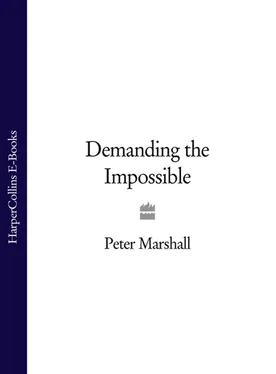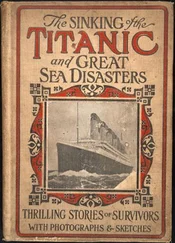the less government we have the better – the fewer laws and the less confided power. The antidote to this abuse of formal government is the influence of private character, the growth of the Individual … To educate the wise man the State exists, and with the appearance of the wise man the State expires. The appearance of character makes the State unnecessary. The wise man is the State. 2
He went on to advise Americans to ‘give up the government, without too solicitously inquiring whether roads can still be built, letters carried, and tide deeds secured when the government of force is at an end’. 3 When in 1850 a fugitive slave bill was passed by Congress and supported by the President, he characteristically declared: ‘I will not obey it, by God!’ He once wrote the lines which the anarchist Benjamin Tucker was fond of quoting:
When the Church is social worth,
When the State-house the hearth,
Then the perfect state has come, —
The republican at home.
In place of government by force, Emerson proposed the popular assembly of a town meeting as the forum for decision-malting. It had served well in seventeenth-century new England, and could serve well again. But there were limits to Emerson’s libertarianism. Having freely accepted to be bound by the rules of a society, he believed that one had an obligation to obey them or else try and change them from within or withdraw. On these grounds, Emerson upheld the Harvard regulation for compulsory chapel.
Emerson’s social views were only a minor part of his Transcendental philosophy which stressed the unity of all things. Everything in this world is a microcosm of the universe and ‘the world globes itself in a drop of dew’. The universe is also ordered by a Supreme Mind or Over-Soul. Since man’s soul is identical with the Over-Soul, and human nature is divine, it follows that there is no need of external authority and tradition. Because there is a higher law in the universe, man does not need human law. The individual can therefore rely on his direct experience for guidance; hence Emerson’s motto ‘Trust thyself’.
Walt Whitman was not a member of Emerson’s literary circle in Concord, but the Sage recognized him immediately as a kindred spirit. When the first edition of his rhapsodic book of poems Leaves of Grass (1855) appeared, he greeted Whitman ‘at the beginning of a great career’, and wished him ‘joy of ‘your free and brave thought’. 4 After their meeting, Emerson went on to praise Whitman’s lawless nature.
Whitman had a completely different background from Emerson. He left school at eleven and held several odd jobs, but gradually began earning a living through printing and journalism. He became the editor of the Brooklyn Democrat paper Eagle , but was sacked for supporting the Freedom movement. He then founded his own paper the Freeman but it folded within a year. Little of his early writing anticipated the remarkable originality of his first volume of twelve untitled poems which became expanded in Leaves of Grass . Whitman intended his poetry, with its remarkable mixture of the earthy and the mystical, to be read by the working man and woman of America. Yet, apart from Emerson’s approval, it was not well received.
A strong democratic and egalitarian impetus and sensibility fire all Whitman’s work. He felt that the New World needed poems of ‘the democratic average and basic equality’. 5 In ‘A Thought by the Roadside’, he wrote:
Of Equality – as if it harm’d me, giving others the same chances and rights as myself – as if it were not indispensable to my own rights that others possess the same. 6
At the same time, Whitman like Emerson was a great individualist. He sang a song of himself and offered an exposé of his own personality in his poems of freedom. But while he celebrated the sacredness of the self, he also praised the love of comrades. He therefore combined his love of comradeship with a strong sense of individuality; he wanted his poems to stress American individuality and assist it—‘not only because that is a great lesson in Nature, amid all her generalizing laws, but as a counterpoise to the leveling; tendencies of Democracy’. It was the ambitious thought of his song to form ‘myriads of fully develop’d and enclosing individuals’. 7
As a journalist, Whitman knew at first hand the corrupting nature of everyday politics. He also directly suffered at the hands of the State. He served as a nurse in the military hospitals of Washington during the Civil War and revealed his sympathy for the common soldier and his hatred of war in Drum-Taps (1865). Afterwards, he became a clerk in the Department of the Interior until the Secretary discovered he was there and dismissed him as the author of a Vulgar’ book.
Whitman therefore had good reason to consider politicians and judges as ‘scum floating atop of the waters’ of society—‘as bats and night-dogs askant in the capitol. 8 He also advised the working men and women of America thus:
To the States or any one of them, or any city of the States, Resist much, obey little ,
Once unquestioning obedience, once fully enslaved,
Once fully enslaved, no nation, no state, city of this earth, ever afterwards resumes its liberty. 9
Whitman spoke on behalf of most anarchists when he asked ‘What do you suppose will satisfy the soul, except to walk free and own no superior?’ But although a radically democratic conception of society emerges from his poetry, he did not offer any clear or definite vision of a free society.
This cannot be said of Henry David Thoreau, whom Whitman admired deeply. ‘One thing about Thoreau keeps him very close to me’, he remarked. ‘I refer to his lawlessness – his dissent – his going his absolute own road hell blaze all it chooses.’ 10
Although Thoreau came under Emerson’s direct influence, he combined mysticism with a Whitmanesque earthiness, and he took Transcendentalism in a more naturalistic direction. He also was not content merely to preach, but strove to act out his beliefs.
Thoreau was born at Concord, and while he spent most of his youth there, he eventually followed Emerson and became a student at Harvard University. After his studies he became a teacher, but he soon returned to Concord. The experience had not entirely been in harmony with his nature: he rapidly tired of modern civilization and sought a new way of life. For a while he lived under Emerson’s roof as a general handyman and pupil, but still he was not satisfied. He therefore decided in 1845 to undertake what was to be his famous experiment in simple living: he built himself a shack on Emerson’s land on the shores of Walden Pond. He lived and meditated there for two years, two months and two days. But the State would still not leave him alone and he was arrested and imprisoned for one night in 1845 for refusing to pay his poll tax. The experience led him to write a lecture on ‘The Rights and Duties of the Individual in relation to Government’. Printed in a revised form, it became first the essay ‘Resistance to Civil Government’ and then finally On the Duty of Civil Disobedience (1849). It proved to be Thoreau’s greatest contribution to libertarian thought.
Thoreau’s refusal to pay a poll tax was a symbolic protest against America’s imperialistic war in Mexico. He could not bring himself to recognize a government as his own which was also a slave’s government. He accepted his imprisonment on the moral principle that ‘Under a government which imprisons any unjustly, the true place for a just man is also in prison.’ 11
Emerson rightly called Thoreau a ‘born Protestant’. He combined the Dissenters’ belief in the right of private judgement with Locke’s right to resist tyranny. He added to them and developed a highly personal and influential form of individualism which was to influence many anarchists and libertarians, including Gandhi and Martin Luther King. Thoreau’s key principle is the absolute right to exercise his own judgement or moral sense: ‘The only obligation which I have a right to assume is to do at any time what I think is right.’ 12
Читать дальше












